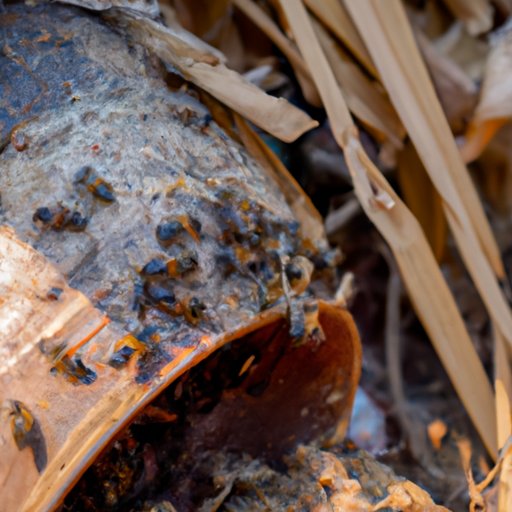
Introduction
Bees are critical for our ecosystem and play a significant role in pollinating crops and plants. However, when bees invade our outdoor spaces or homes, it can become a major problem. Not only can they be dangerous for those allergic to bee stings, but they can also be a nuisance. It’s crucial to find ways to keep bees away without harming them. This guide will explain several natural and effective methods to repel bees while also keeping you safe.
Natural Bee Repellents
Many essential oils and herbs are natural bee repellents. They don’t harm the bees but instead repel them effectively. Three common natural bee repellents are cinnamon, peppermint, and cloves.
Cinnamon, a spice commonly found in most kitchens, is known for its sweet fragrance. However, bees don’t like the smell of cinnamon, so you can use it to repel them. Simply sprinkle cinnamon around entry points to your home, doorways, and any area you want to keep bee-free.
Peppermint is another essential oil that’s excellent at repelling bees. Mix peppermint oil with water in a spray bottle and spray it around the perimeter of your home or any area where bees like to gather.
Cloves are also a useful bee repellent, and like cinnamon, it’s a great spice found in most households. To use cloves, simply stick them into a piece of fruit and place it outside your home.
Bee-Repelling Plants
Another effective way to keep bees away is by planting bee-repelling plants in your garden or around your home. These plants have natural oils that bees do not like and can repel them.
Marigolds, citronella, and eucalyptus are three plants known for their bee-repelling properties. Marigolds have a potent smell and can help protect your garden from bees. You can plant citronella around your patio or outdoor seating area to repel bees and mosquitoes. Eucalyptus is another great plant for repelling bees; its strong scent is a natural deterrent, so planting it near your home can help in keeping bees away.
Managing Garbage and Compost
Bees are attracted to sweet and sugary scents, so managing your garbage and compost is crucial to keep them away. Make sure your trash cans are sealed tightly, and don’t leave sugary or sweet foods outside. Additionally, compost should be properly covered to avoid attracting bees.
Sealing Home Entry Points
Bees may enter your home through loose screens or cracks in a window. Inspect your home for potential entry points and seal them. This not only keeps bees away, but it also helps to prevent other pests such as rodents from making your home their own.
Insecticides for Bees
Insecticides should always be a last resort when trying to get rid of bees. However, if all other methods have failed, you can use insecticides. These should be used with caution, as they can harm bees and other useful insects. Use insecticides that target specific types of bees and follow the instructions carefully. It is important to protect other beneficial insects while eliminating the harmful ones.
Protective Gear
Before taking any action to get rid of bees, protective gear should be worn. Wear clothing that covers your entire body, including long sleeves and pants. Additionally, wear gloves, a hat, and a veil to protect your face from bee stings. This protective gear will help you avoid any serious bee-related injuries.
Professional Assistance
If you’re dealing with a large infestation of bees or are unsure about what to do, it’s best to contact bee removal professionals. They have the expertise, equipment, and protective gear needed to safely and effectively remove bees from your home and area.
Conclusion
Bees are critical to our ecosystem, but when they invade our homes, it can become a significant problem. To keep bees away, you can use several natural methods, such as bee-repelling plants and essential oils. Additionally, bee management is essential by managing your compost and garbage and sealing any potential entry points in your home. Protect yourself by wearing protective gear and contacting professionals if necessary. By following these methods, you can keep bees away while protecting their essential role in the ecosystem.




